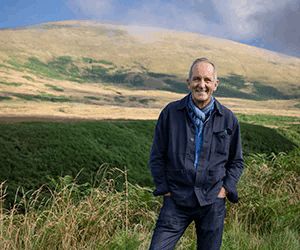Wemyss Development Company reports £21.2m drop in turnover
 Wemyss Development Company, the Scottish-based conglomerate which runs Kingsbarns Distillery in Fife, has reported a £21.2 million drop in turnover in its last financial year.
Wemyss Development Company, the Scottish-based conglomerate which runs Kingsbarns Distillery in Fife, has reported a £21.2 million drop in turnover in its last financial year.
Turnover fell to £27.5m in the 12 months to the end of March 2020, compared to £48.7m the year before. Pre-tax profits also plummeted to £3.6m from £11.2m in the same time period.
The firm is involved in sectors including property, wine and spirits and renewable power. The firm also has businesses globally with a French vineyard, farming interests in Australia and a tea operation in Kenya.
The group – which employs nearly 1,900 people – oversees the interests of the Wemyss family, whose ancestral home is Wemyss Castle in Fife, The Courier reports.
The directors’ strategic report filed alongside the firm’s accounts, revealed that the company’s UK property and construction business had an active year, developing two residential projects in Edinburgh and Glasgow.
However, the group did not complete any major projects in the year. The large Newbattle Terrace development in Edinburgh was completed in the previous year, resulting in significant revenues.
On the wine & spirits front, Wemyss Family Spirits and Kingsbarns Distillery continued to trade domestically and internationally during the last financial year.
The board believes the long-term demand for Scotch whisky will remain strong. It acknowledges the effects that COVID-19 and international trade tariffs will have on trading, but believes in the long term these markets will recover.
However, the French vineyard is said to have had yet another hard year with a poor harvest.
Meanwhile, the directors said that the renewable power projects in the UK continued to be operational in the year, and that electricity generation was in line with expectations.
Broad Acre Farming in Australia enjoyed another successful year with sales of grain. However, livestock sales were 19% down as a result of a lower stock level due to the strategic decision to switch to another breed of sheep. The avocado orchard increased production and also saw improved prices.
The strategic report added: “Our joint ventures in Australia continue to be profitable, largely as a result of increased fruit production.
“The consolidated Australian farming operations made another good return. The directors are pleased with the progress being made by the current management team and are keen to consider new opportunities to expand in the region.”
The directors also said that the tea operation in Kenya performed well. Production and sales volumes were higher than previously due to good teagrowing conditions, with an increase in estate production by 30% while out-grower production reduced by 4%. The two factories continued to operate near to full capacity.
On the subject of principal risks and uncertainties, the strategic report says that COVID-19 will continue to affect some of the group’s ventures more than others. The directors added: “The management teams are working hard to mitigate this impact.”
They said that the success of the overseas businesses, which are agriculture-based, depends in part on risks such as exchange rates, commodity prices and weather – factors outside the board’s control.
The directors concluded: “The success of these businesses is considered over the longer term, which requires planning in advance for several years.”

















